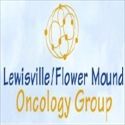-
About
- About Listly
- Community & Support
- Howto
- Chrome Extension
- Bookmarklet
- WordPress Plugin
- Listly Premium
- Privacy
- Terms
- DMCA Copyright
- © 2010-2025 Boomy Labs

Listly by Lewisville Flower Mound Oncology Group
The Lewisville Flower Mound Oncology Group delivers on-going texas oncology center and cancer treatment care throughout all stages of cancer recovery.

Our team at LewisvilleFlowerMoundOncology is dedicated to treatment of prostate cancer with vast experience in prostate seed implants.

Find the information you need to know about cancer therapy with LewisvilleFlowerMoundOncology. We offers quality cancer care with compassion.

The best type of cancer treatment is there when you need to detect problems early and treat it quickly. LewisvilleFlowerMoundOncology offers hope and help for cancer patients and their families.

When benign breast disease is diagnosed, healthcare providers and patients may want to focus on prevention therapy since the disease puts women in a higher risk category.

Men who are concerned about prostate cancer are urged to discuss early screening with their healthcare providers. Early detection and treatment of this disease can improve outcomes greatly.

The presence of these symptoms does not mean that you have lung cancer but it’s important to see your doctor if you are experiencing any of these conditions.

LewisvilleFlowerMoundOncology a place where patients can see a familiar face and feel completely supported in their journey towards healing. As a team, we go above and beyond to make sure that our patients are always comfortable, respected, and given everything they need to succeed.

A recent analysis of the worldwide cancer frequency also showed some interesting trends in regard to the types of cancer being diagnosed in different parts of the world. Read here for statics.

A recent study looked at the benefits of stereotactic radiosurgery, also called gamma knife surgery, in treating trigeminal neuralgia. Living with trigeminal neuralgia is not easy, but help does exist.

Cancer was once considered a concern for those in more developed countries. There are measures people in America and worldwide can take to reduce their risks of developing cancer.

At the three-year mark, researchers noted encouraging findings for patients who underwent radiation therapy to improve post-surgical tumor control. Overall survival rates were recorded at 34.1 percent.

Since ductal carcinoma has a very high survival rate, about 98 percent at the 10-year mark, researchers have long been concerned about over-treatment in this non-invasive form of the disease.
Androgen deprivation therapy involves the suppression of androgen hormones. These hormones, which include testosterone, are used as fuel by prostate cancer cells.

A new study has shed light on a strong potential link between family history and the formation of testicular cancer. The study involved a study of more than 22,000 twins. Researchers were looking at the twins to discern the familial risk for a variety of cancers.

The report finds that the overall cancer incidence rate in women is stable and has declined by 3.1 percent per year in men over the period of 2009 to 2012.

Cancer clusters are technically nothing more than a greater number of cancer cases within a specific population, generally determined by geography.

As more women undergo valuable genetic testing and more jump on the preventative surgery bandwagon, the number of mastectomies and double mastectomies performed is also rising,” says Dr. Gregory Echt, founder and lead surgeon at Lewisville Flower Mound Oncology.

HPV vaccines have been most widely publicized as helping prevent cervical cancer. This disease strikes an estimated 12,000 American women annually and claims about 4,000 lives over the course of a year.

A recent study looked at four specific HPV antibodies found that patients with certain antibodies were seven times more likely to witness a recurrence than patients with lower levels.

Researchers have discovered a number of different biomarkers in breast cancer tumors. These biomarkers indicate tumors that can react very differently to specific types of treatment such as chemotherapy drugs certain way.

Researchers have found that a large number of young women diagnosed with breast cancer are opting for bilateral mastectomies out of concern for the genetic risk.

A recent study, in fact, found that cancer patients prescribed two or more radiation sessions are skipped are much more likely to witness recurrence than those who follow the dosage instructions to the letter.

Researchers at the University of Newcastle in the UK was recently launched on the subject. The study focused on people with Lynch, a possible link with hereditary colorectal cancer syndrome.

Overcoming appetite concerns in end-stage cancer can be difficult, if not impossible. For people suffering from appetite-related issues due to treatments, however, there are ways to cope.

PARP14 may hold the key to better diagnostics and treatments for cancer,” says Dr. Echt. “As studies continue, the need to assess personal cancer risks and take steps to lower them remains quite constant.
